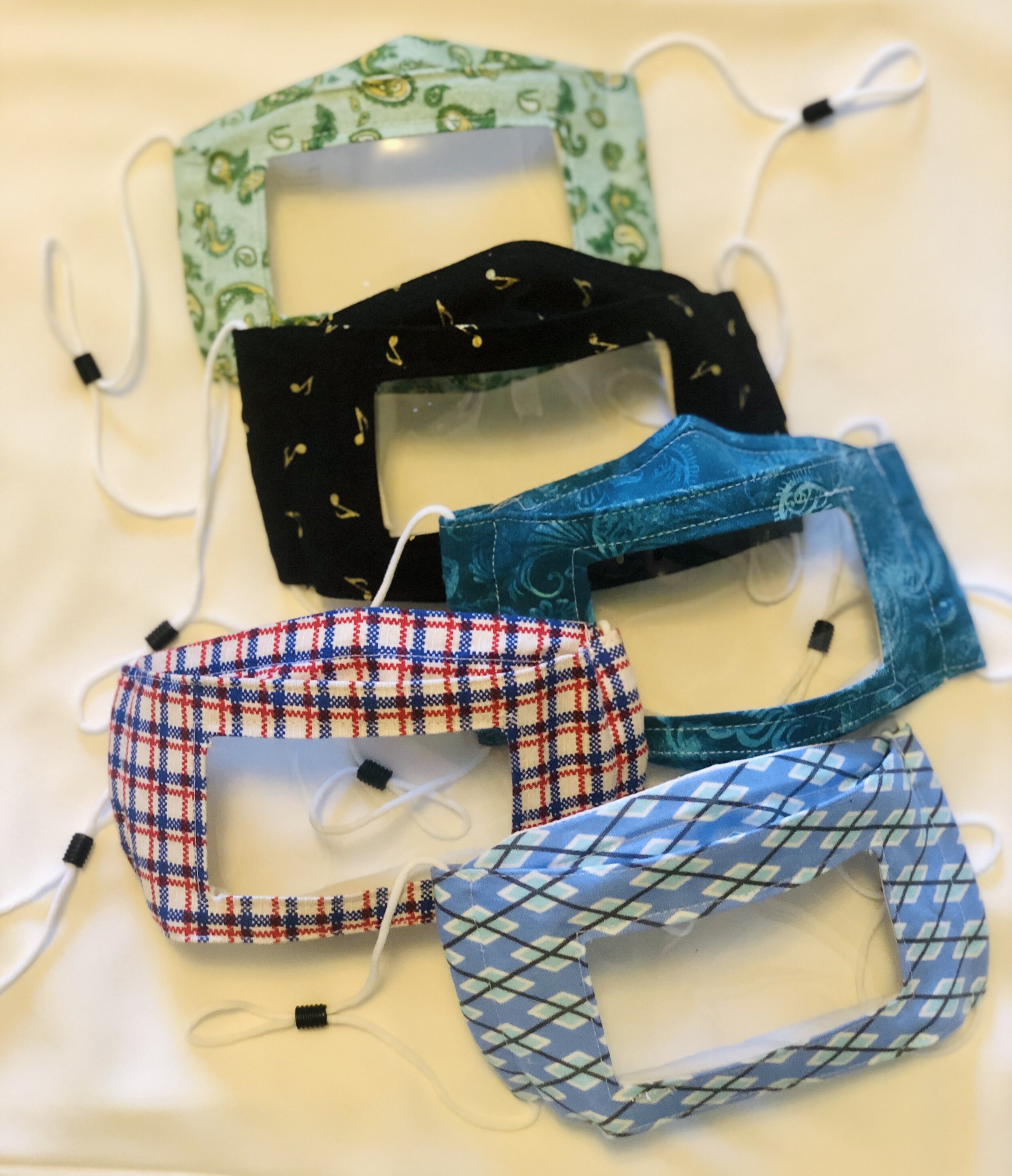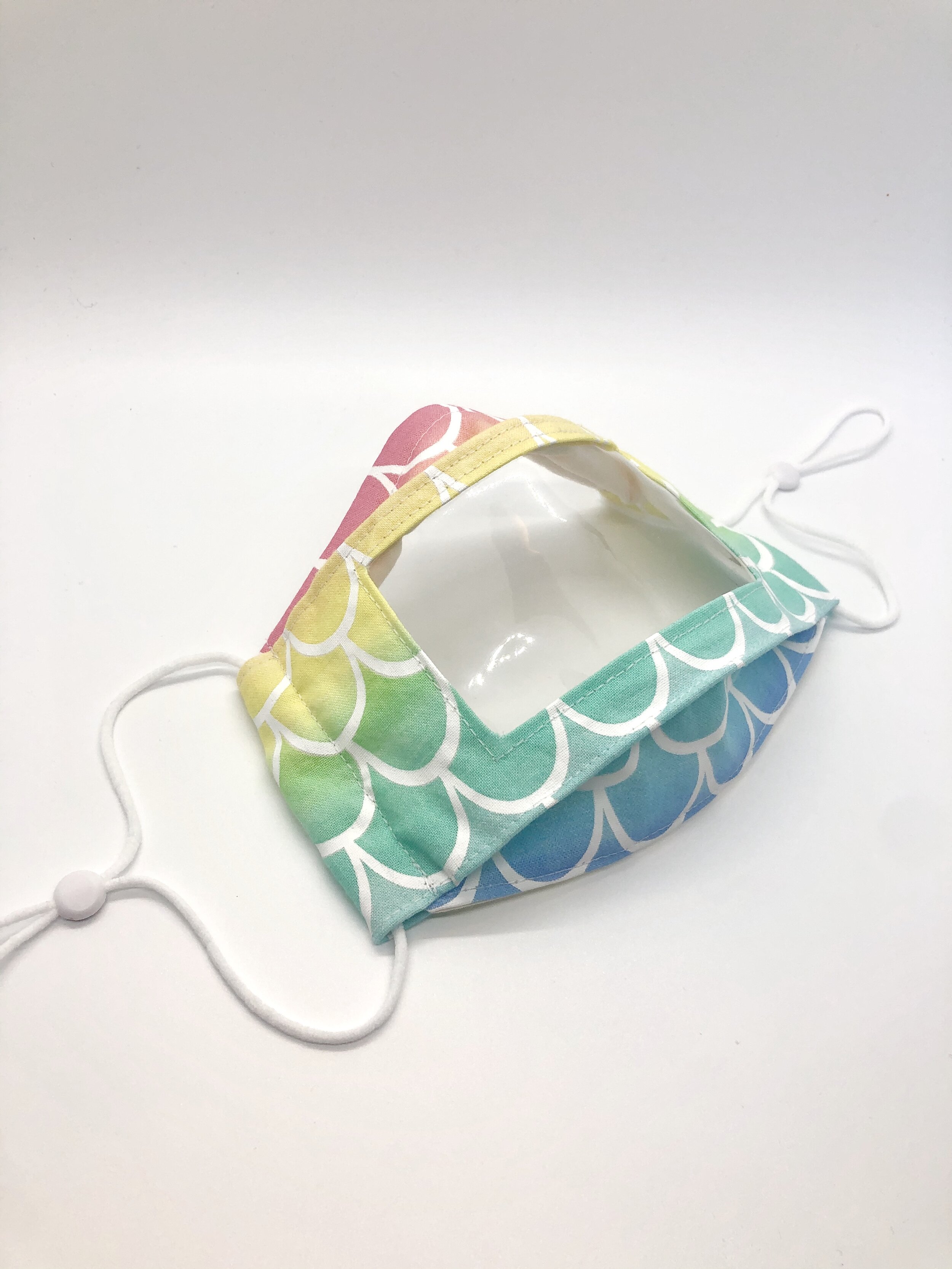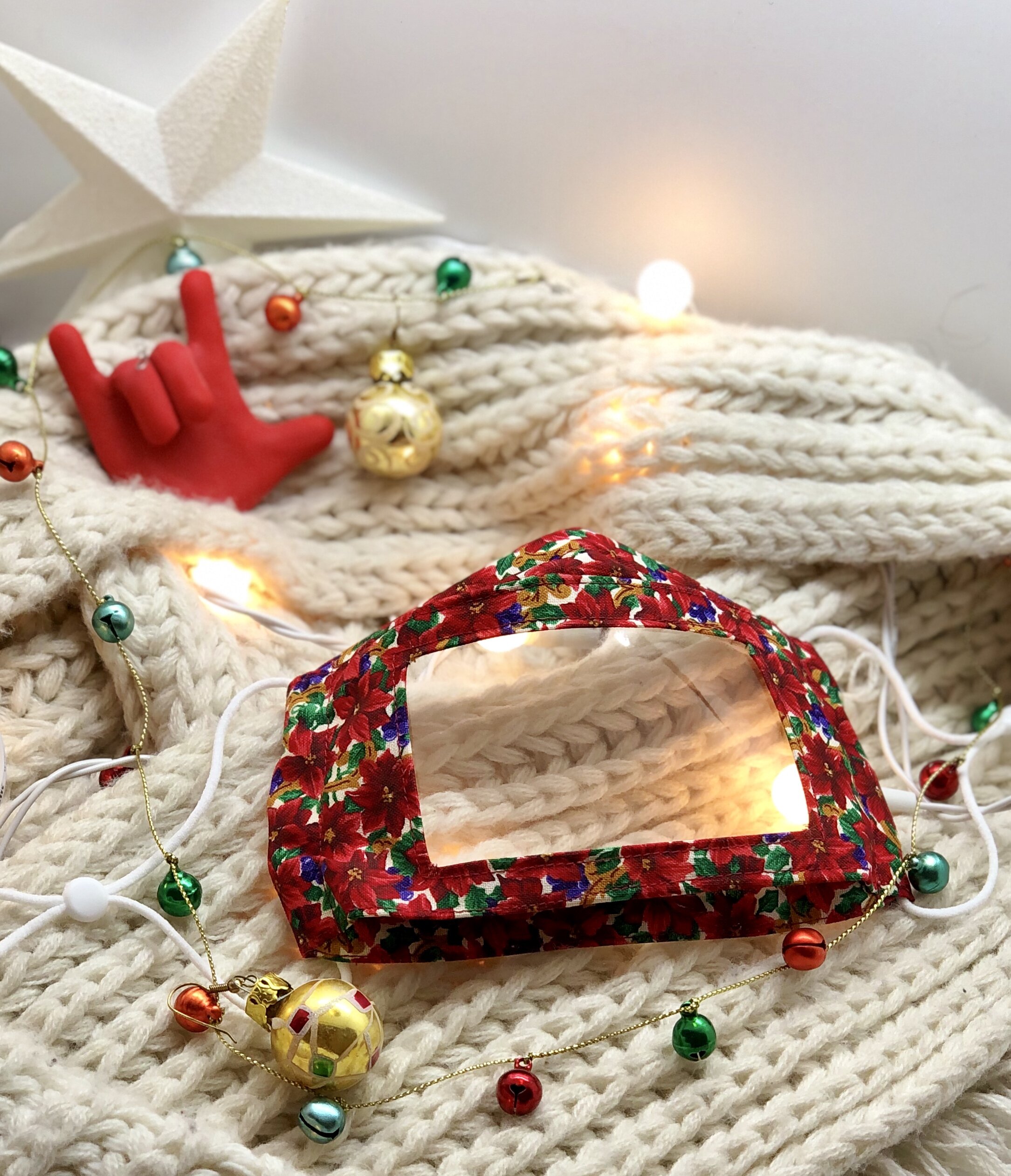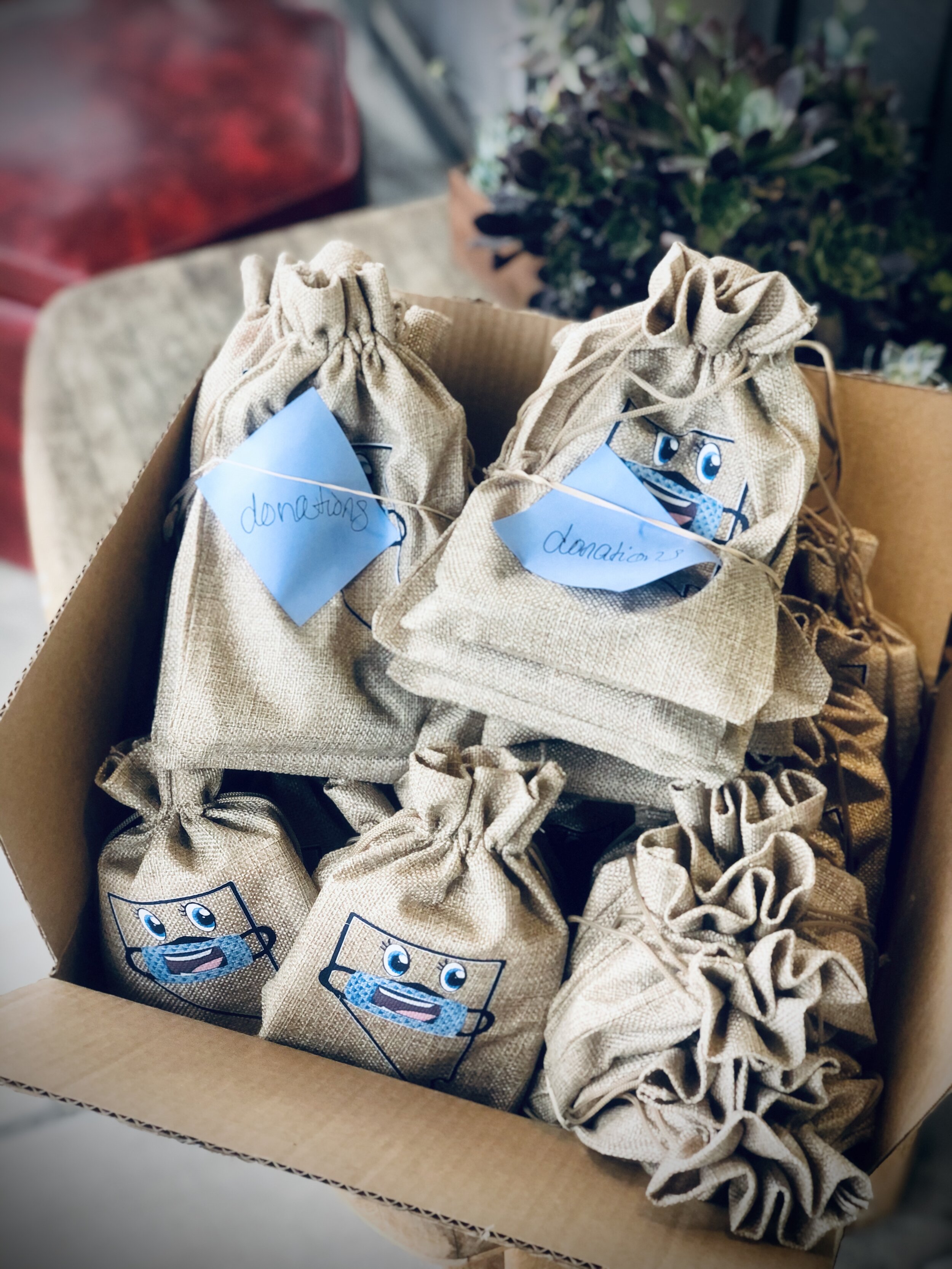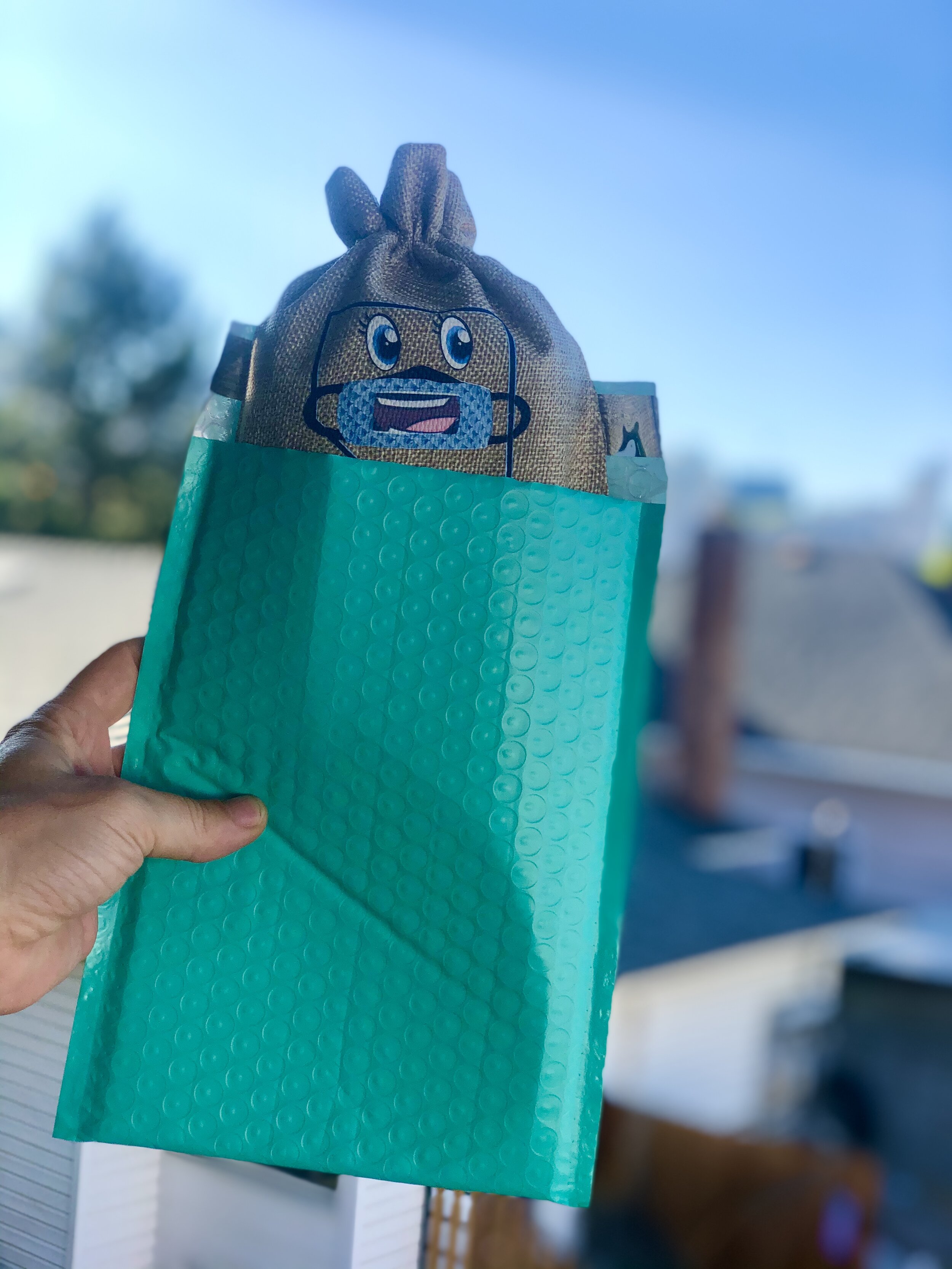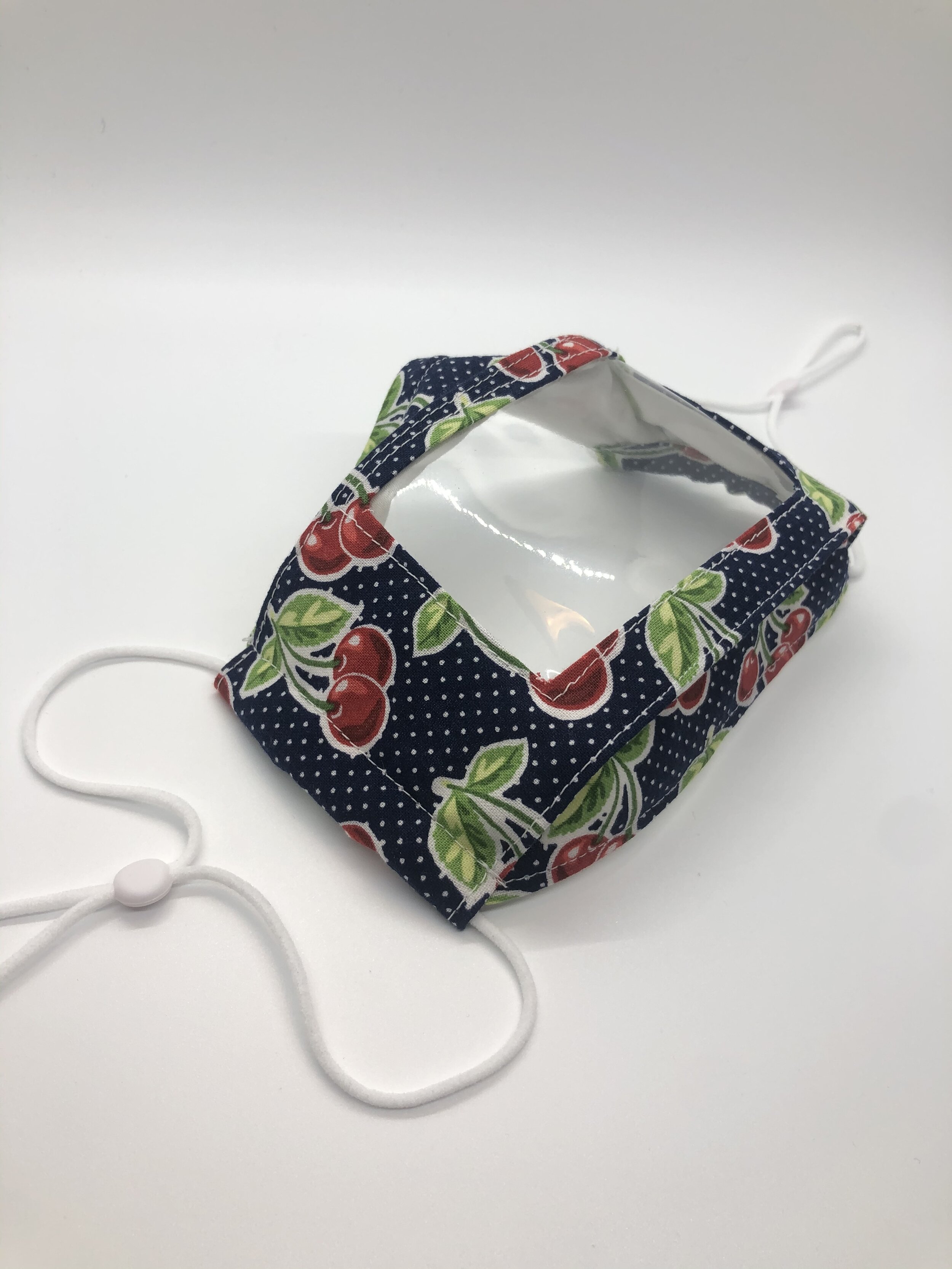Seeking Equal Access in a Time of Masked Communication
Photos/Leala N. Lierman.
By Leala N. Lierman
Life in a pandemic is challenging for everyone. Loss is abundant: Loss of income, loss of autonomy, loss of life. Everyone around the world feels the hurt and frustration that comes with isolation and quarantine. A few groups in particular feel the isolation even deeper. For individuals like myself with hearing loss, conventional masks prevent speech reading and lipreading. For individuals with Autism Spectrum Disorder, conventional masks minimize important social cues. This physical barrier not only muffles audible sound but mutes visual communication. Word clarity and comprehension are lost and any chance of effective communication is gone.
There have been many instances that I haven’t realized someone was speaking to me at all until I notice their raised eyebrows and piercing eyes fixed on my also partially covered face. As a bartender, this creates a tense start to their customer service experience. As I realize what’s happening I say, “Oh I’m sorry, were you talking to me?” They respond, “Well yeah, who else would I be talking to?” I always apologize again as if it were my fault that my ears do not work properly. They never have. I spent my whole life learning to cope with my communication differences. I thought I had become pretty good at it, until the mask mandates began.
Now, I search for new ways to cope. In the restaurant and behind the bar, I rush to deliver waters before a customer has a chance to look at the menu. My hope is that the water will encourage them to take their mask off. I am no longer worried with my personal safety. I just need to make enough money to survive. Which, in my profession, is entirely reliant on my ability to communicate efficiently.
Back in March when this all began, I would call my parents when I got off work venting my frustrations and concerns. If only there was a way for me to still read lips and remain safe. I turned this dilemma over and over in my head until Nevada Smiles Equal Access Masks were born.
The reality is that my mask production company does not do much to help me directly. An Equal Access Mask does not help me hear better unless the person in front of me is wearing it. My goal for opening this business was primarily to raise disability awareness and provide our teachers with a high quality option in which to teach. Honestly, if my teachers had been in masks, I never would have graduated from high school, yet alone college.
Let’s talk for a second about what the kids and teachers are experiencing during this pandemic. It is imperative for students from kindergarten to third grade to see their teacher’s mouths. Did you know that the majority of kindergarteners were not allowed to be walked into a classroom by their parents? Can you imagine being five or six-years-old only to be dropped off to a stranger who can not even smile at you? Now, the teachers are expected to teach complex subjects like phonetics and model appropriate social behavior. However, they have been stripped of one of their biggest tools. Suddenly, not just the hard of hearing kids are affected - everyone is.
In May, I graduated from the University of Nevada, Reno’s School of Medicine in Speech Pathology and Audiology. This is where I really began to learn what equal access meant and how to go about advocating for it. The goal of equal access is to provide adequate resources for all individuals of society to participate in said society regardless of disabilities. Examples for people who are d/Deaf and hard of hearing include (but are not limited to): closed captions, sign language interpreters, access to hearing aids and ear protection, and access to visual communication.
That’s the whole problem with conventional masks; they do not provide access to visual communication. Outside of lip-reading, sign language is another example of this. Roughly, 70% of American Sign Language context and meaning fall on the face. The remaining 30% reside in the hands. If the majority of faces are covered, the majority of the language is lost. Those of us fluent in American Sign Language, rely heavily on lip-reading to communicate with individuals who do not sign.
In an effort to solve the visual communication problem, it took a long time to develop a product that was reliable, comfortable, and highly functional. I ran into many problems along the way, each one requiring a unique and innovative solution. The size did not fit well for a variety of faces. I added adjustable ear straps.The communication window fogged up when talking. I created an all natural anti-fog. I do not want to hand wash them, so every mask is made of 100% cotton that I pre-shrunk.
The name, Nevada Smiles, came about as an afterthought. I wanted to use a name that everyone could relate to regardless of disabilities. Collectively, we miss seeing people smile at one another across a restaurant or in line at the grocery store. We miss those short and sweet interactions that remind us what it means to connect to one another. I know people miss being able to smile at each other but honestly, I miss being able to communicate with ease and accuracy.
The support I have received from our community has been tremendous! I partnered with a non-profit organization called Nevada Hands & Voices. With the help of countless donors and community members, we have successfully put every parent of a hard of hearing child in Nevada who requested an Equal Access Mask in one at no cost to them. If you are interested in learning more about my company please visit my website NevadaSmiles.org or shoot me an email directly NevadaSmiles775@gmail.com.
I have no idea what the future of my company looks like. History reminds us that we have been in masks before, and we will be in masks again. Right now, it is hard to say how long we will be asked to keep our faces covered. I am hopeful that with vaccines on the horizon, Nevada Smiles will become obsolete. I am even more hopeful that going forth, people will remember my story, my experience and that the next time around, Equal Access Masks will become the norm. This pandemic would have been far less difficult if I could better communicate and smile with those around me.
Leala Lierman is the sole owner and designer of Nevada Smiles. During the evenings, she works at a farm-to-table restaurant as a manager and bartender. Leala grew up locally in the public school systems attending Tahoe Lake Elementary, North Tahoe Middle School, and then Reno High School. She has an Associates degree in Deaf Studies from Western Nevada College and a Bachelors degree in Audiology and Speech Pathology from the University of Nevada, Reno. Being hard of hearing herself, Leala is passionate about hearing loss awareness and deaf education.
Thank you for visiting Humanities Heart to Heart, a program of Nevada Humanities. Any views or opinions represented in posts or content on the Humanities Heart to Heart webpage are personal and belong solely to the author or contributor and do not represent those of Nevada Humanities, its staff, or any donor, partner, or affiliated organization, unless explicitly stated. At no time are these posts understood to promote particular political, religious, or ideological points of view; advocate for a particular program or social or political action; or support specific public policies or legislation on behalf of Nevada Humanities, its staff, any donor, partner, or affiliated organization. Omissions, errors, or mistakes are entirely unintentional. Nevada Humanities makes no representations as to the accuracy or completeness of any information on these posts or found by following any link embedded in these posts. Nevada Humanities reserves the right to alter, update, or remove content on the Humanities Heart to Heart webpage at any time.


